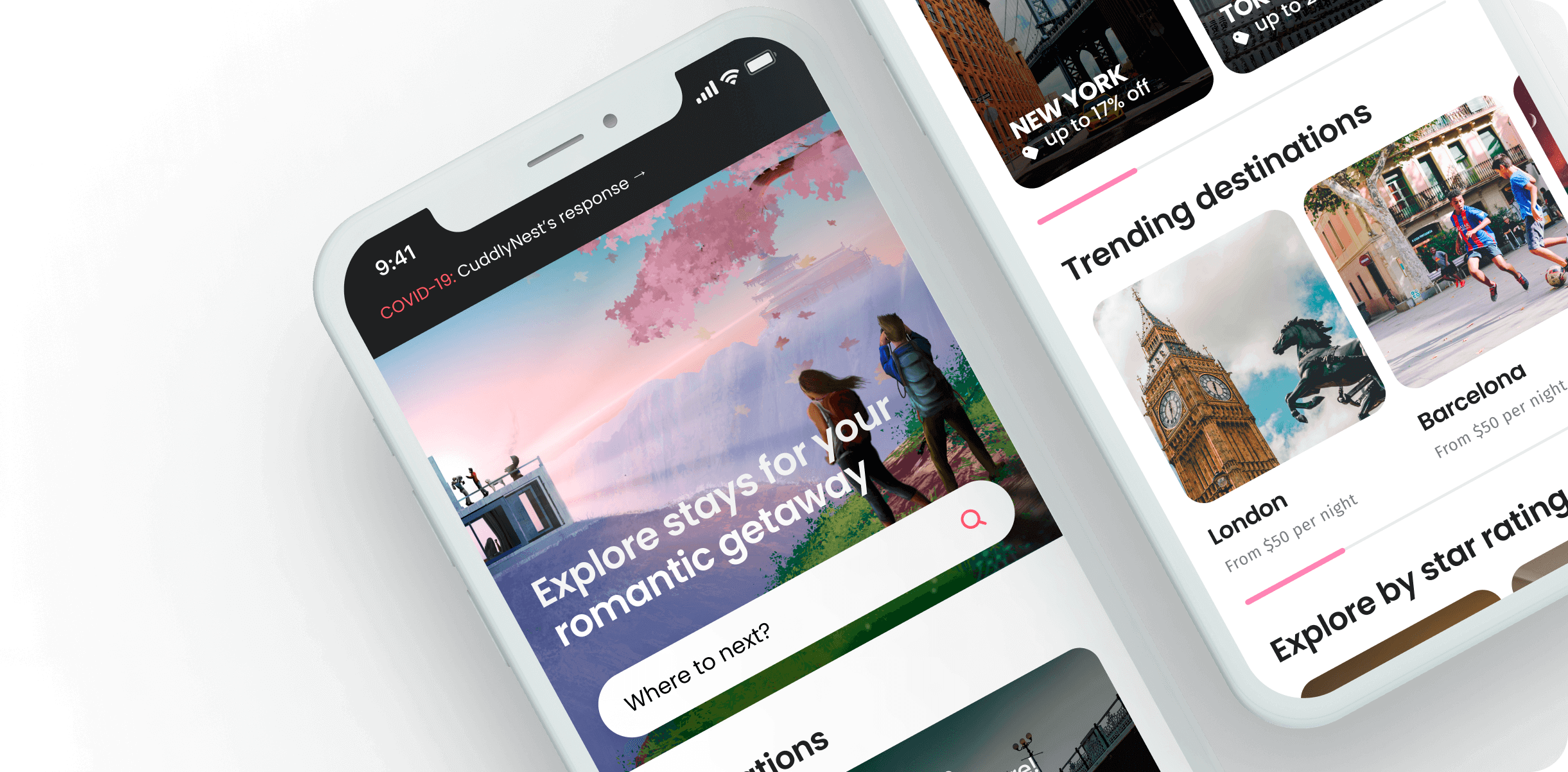Travel and Visit Europe After Brexit on 31 October
What else will change after October 31? With no-deal Brexit, visiting Europe after Brexit may become a bit more of a struggle. Read further to know what to expect and how to prepare in advance.
Visas to Europe
There will be no visas. The European Parliament has granted Britons right to travel to the European Union without a visa after Brexit, staying in Europe visa-free for up to 90 days in any 180-day period. It is, however, only granted if the UK implements similar measure for EU citizens.
Travel with Pets to Europe after Brexit
After October 31, there will be slight changes in pet travel to Europe. To prepare for travel with your pet, there are some simple steps you should follow.
If the United Kingdom becomes the third country once it leaves the EU, and automatically an unlisted country. However, it can apply to the European Commission to be listed (Part 1 listed or Part 2 listed), in which case pet travel becomes easier. If leaving with no-deal Brexit, then with conditions of the unlisted country, you should follow the following procedure to travel to Europe with your pet.
- You have to microchip and get your dog/cat/ferret vaccinated before you travel, and take a blood sample within 30 days of the last rabies vaccination.
- Your vet will send the blood sample to the EU-approved testing laboratory and wait for the blood test results. When 3 months from the successful blood test sample have passed, you can now go to Europe to travel.
- Your vet will give you a copy of test results and enter the date of a sample taken into your pet’s health certificate.
If you are a frequent traveller to Eu, your pet will not need a repeat blood test if the previous one was successful and rabies vaccination history is up-to-date. However, you will need to get a new health certificate for each trip within 10 days before your trip.
Returning to the UK, you will need your EU pet passport, animal health certificate and UK pet health certificate. To learn more about pets travelling with UK nationals living in the EU or scenarios in which the UK becomes a listed third country, read more on UK government Animal and Plant Health Agency guide here.
Holidays to Europe after Brexit: How Not to Lose Money?
With the British pound tumbling long-term low ( lowest since 2012), it is a serious matter to manage your pounds before going on holiday to Spain, Italy or Croatia this autumn. To plan ahead and not to exchange pounds in Europe is a must; to be exact, it is much more of a better deal if you take cash with you – this way you will not lose 15% of your money on airport booths. Want to save even more? Buy your holiday currency now.
Spain Listeria Outbreak: Keep Safe from Bug
The food poison and listeria outbreak in Spain have been on news recently, with 200 Britons suffering. To keep safe, you should stay away from meat products and rather go for vegetarian and vegan Spain meals. To learn how to ask for a no-meat meal at a restaurant, read our advice here.
Sustainable Travel and Responsible Transportation in Europe
If you think that sustainable travel is all about booking a green hotel, visiting countryside tulip farms, then you may as well be tricked into buying a refillable water bottle while waiting for a carbon-fuelled cheap airline flight from one city to another.
While crossing out the overcrowded destinations and cutting out plastic is indeed important, even more so is your transportation mode and dietary habits. While we already wrote about how to eat sustainably in Spain, what to pack for zero-waste travel and where to switch from overcrowded Europe destinations, the transport is oftentimes overlooked as neutral to sustainable travel when in fact, it is not.
Train Travel in Europe after Brexit
There is only as far you can get walking, running or pedalling on your bike. While we strongly encourage you to go on a cycling tour in France, or all across Europe, it is almost inevitable to use a transport mode powered by other than man energy, unless you are up for riding a horse or sailing across Atlantic to attend a business meeting like Greta Thunberg.
There are a few simple ways to switch from unsustainable low-fare, high-emission short flights to green vehicles, like electric trains and electric buses to get to your holiday destination. For visiting Europe, one of the most convenient, no-fuss and also the most sustainable way to get around the continent is to get a Eurorail pass. Partnering with national train lines, routes include thousands of European towns and cities in 31 countries for Eurorail global pass. Alternatively, you can slash your expenses and choose one country pass. Easily accessible, customizable train passes may not be the cheapest, but definitely the most convenient way of getting around, allowing for days, weeks and even months of travel.
Buses
Unless you are going on family Europe holidays and your rental car is fully loaded, public buses come second best choice to tackle transport carbon emissions. European public inter-city and international bus lines are quite well developed, especially in less populated and developed regions, like Balkans and the Baltic States, or in between smaller towns. If you are up for a long-haul bus ride, though, be prepared to check reviews first, to avoid smelly toilets. Most buses in Europe these days come from with reclining seats, free WiFi, and silence, instead of the latest Eurovision song on repeat.
Hitchhiking
Not being an option if strive for convenience or try to juggle across Europe with a family or dog, but.. As long as you are (young?), wild and free, hitchhiking around Europe is the easiest way to travel with zero regrets about environmental track left behind you, as you are simply making the trip of somebody else to be more resource-effective. As for the budget, it is also a more budget-friendly option, while for safety you should always check Hitchwiki site for tips, tricks, best spots and even gatherings and hitch-races.
Carpooling
An alternative to blind hitchhiking is other sharing transportation services, like carpooling. Hopping into Oskar in Hungary, BlaBlaCar in Southwestern Europe, or Carpool.be in Belgium and Netherlands, you can give a boost to shared services. These will work the best in mainstream hours following people who do daily or weekly commuting to work, university or countryside house.
Eco-friendly Travel Transportation Apps
To choose between the modes of transport, we suggest always go for road transportation and if possible then sharing services, but if you are still puzzled what’ s the best for planet, here are some apps to guide you through travel ecology and help to plan you travel consciously.
Green Travel Choice
Green Travel Choice app allows you to track your CO2 emissions, no matter if you are driving a rental car, taking a bus or riding a motorbike. The app logs your trips, travel distances, and your emissions over time, and you can travel and learn at the same time. Partnering with TIES, The International Tourism Society, developers have worked hard to provide accurate data in collaboration with one of the most influential ecotourism organizations.
To download the app, you will need to have $1.99 on your card and iPhone, iPod or iPad running at least iOS 3.0
BlaBlaCar Travel After Brexit
BlaBlaCar is an app dedicated for people to share rides. You can look up rides several weeks In advance or create search reminders for either carpooling or bus taking you to the destination. You can decide between the cars based on who has booked a ride already – red their profile feedback before sharing a long-haul ride. The app is for free, available for both iOS and Android devices.
FlixBus
Need a last-minute bus from one city to another? There is no better (and almost no greener) way to get around Europe – just open the app, book your ride and hop on the bus to get to your desired destination. according to the reviews, however, the FlixBus app does not always update the time schedules for buses, so beware the fact that there is a slight chance of you staying on the road.
Eurail vs Interrail – Carbon Neutral Travel Transport Options
Eurail and Interrail passes are probably the best option to anyone coming to Europe for sustainable holiday and visiting several cities at once.
Eurail or Interrail – What’s the Difference and Which One Should You Get?
Both are referring to international or intercity train network passes for the European 31 country network. The difference here lies In the fact that all-in-all, while InterRail passes are for Europeans, Eurail passes are for non-Europeans, it can get a bit more tricky with residence area. You cannot buy a Eurail pass if you reside in Europe, as well as you cannot buy an InterRail pass if you don’t.
As a UK citizen, you are in luck, as InterRail is much cheaper (under 25 years of age one-month pass goes for €422 for InterRail and €568 for Eurail). While Eurail pass offers many more options for travellers to choose from: one-country pass, two-country and regional passes.
Just in case you wonder, there is a difference in train types included in each type of pass. InterRail Global Pass also covers Ecostar high-speed train connecting London, the United Kingdom with France and Belgium. You can reserve the train up to 3 months in advance. However, for many other high-speed trains like French TGV, night trains and scenic trains, reservation with an additional fee is required.
InterRail – Is it Worth it? Budgeting for Sustainable Travel
Is Interrail worth it? To say the least, Interrail pass is quite a splurge. While flexibility and city-hopping may be worth it, we advise you to always check the trains available on your approximate travel route. More often than not, with good planning and booking bus and train tickets well in advance, single-ticket rides are much more budget-friendly, allowing you to save some money.
However, if you are with your backpack, open to spontaneity and rather horrified of catching free WiFi’s across the road trying to look up train schedules and understand the timetables in a foreign language, Interrail may be for you.
However, you should still remember to make reservations in advance – you can do it via Rail Planner app.
Travel for Free with UK youth pass to Europe after Brexit
If you are a student coming from the United Kingdom and wishing to travel for free, go for it! Even after Brexit, British teenagers will be able to apply for free EU rail passes awarded by European Union on its 20,000 free train passes within “DiscoverEU” project. No matter if UK exits EU on 31 October, British teens will be continued to be awarded EU train passes, to be “ambassadors” of Europe and share their travels on Instagram, Twitter and Facebook. If you missed the deadline on 16 May, there is still a chance to apply for tickets in the second round in Autumn 2019.
Once the UK leaves the EU, the British will not be able to take part in European programmes, like the Erasmus student exchange, so InterRail pass may be one of the last chances to milk Europe.
you might also like:
Train Travel in Europe
Best Fruits in Europe
Europe’s Offbeat Destination




